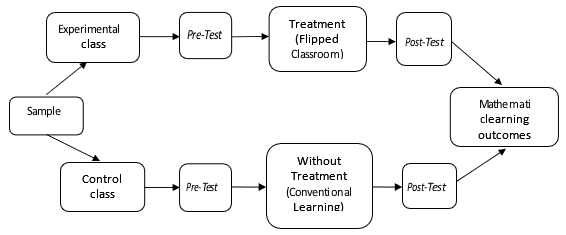Blind Special Education Students' Mathematics Psychology in the Pandemic: The Impact of Flipped Classroom Learning
Main Article Content
Abstract
Blind students' mathematics learning results during the Covid-19 epidemic will be examined in this research using a Flipped Classroom approach. This research makes use of a quasi-experimental approach that includes non-equivalent control groups. Blind kids in grades IV and V make up the study's population of 16 participants. Saturated sampling was used to collect the samples. Students in the experimental class are taught using the Flipped Classroom paradigm, while those in the control class are taught using a direct learning approach as a comparison. A p-value greater than 0.05 indicates that the data are normal and homogenous. The average of two unpaired samples from data is compared using the independent sample t-test. There is no H0 for a t-statistic of less than 0.05; if it is less than 0.05, it is not accepted. First, the Sig.t count (2-tailed) or the P-value are compared to make the first decision. After the second judgment, H0 is no longer a valid hypothesis. Learning arithmetic in a traditional classroom or without any treatment utilizing the Flipped Classroom methodology was shown to be less beneficial for blind pupils during the covid-19 outbreak.

